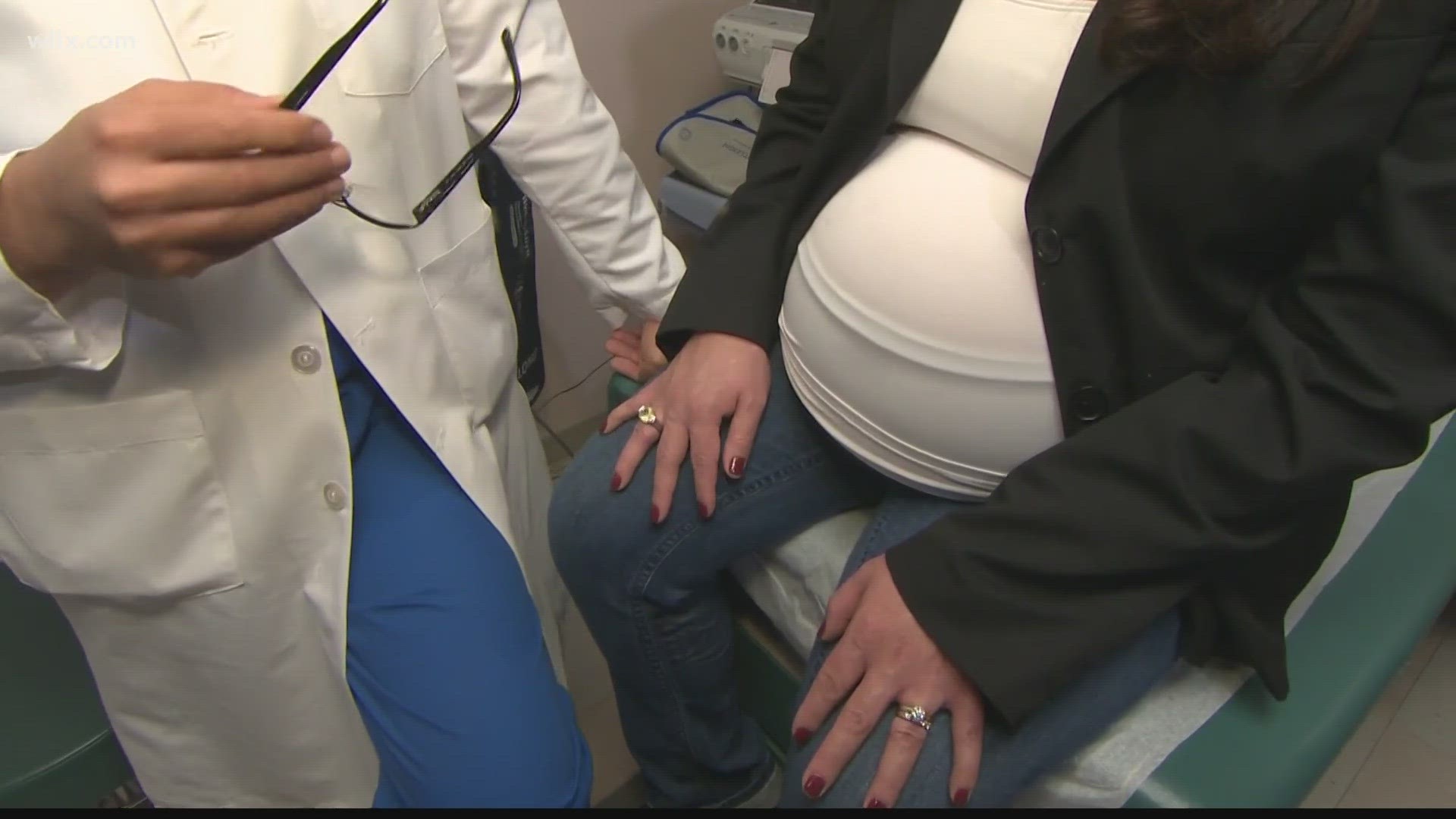COLUMBIA, S.C. — In South Carolina, rural pregnancy-related deaths were about 70% higher than those in urban settings. That’s according to DHEC's latest report on maternal mortality in the state. The report also says Black women were 2.5 times more likely to die from a pregnancy-related death.
This comes in time for Black Maternal Health Week.
“I don’t know how much longer it's going to take to bring about reform," Tiffany Townsend, a Midland's midwife said.
Between 2018 and 2019, pregnancy-related deaths in South Carolina saw a 9.3% increase. The report also notes discrimination was credited for 55.6% of contributing factors to death. This is why many mothers turn to alternative care providers like, Tiffany Townsend, who is a midwife.
“We’re not doing a good job by families here and specifically Black families," Townsend said.
In South Carolina, Black women are 67% more likely to die either during childbirth or due to pregnancy-related complications.
Townsend says she came to South Carolina because of the high death rate to better train other midwives.
“I’ve delivered in Texas, I’ve delivered in Mexico, I’ve delivered in Michigan," she said.
Townsend said the main difference between delivering babies in those places is current South Carolina law.
Another concern is care providers not listening to patient concerns.
In a statement, DHEC's Bureau of Maternal and Child Health Kimberly Seals said, “The rising infant mortality rate in black women and the continued racial disparity in mortality rates remains a concern here in South Carolina. We must continue our work to ensure we are reaching more expecting parents so we can close this gap, which will assist in bringing the total infant mortality rate down as well.”
The report also addressed infant mortality rates in the Palmetto State. That number increased by 40% since 2017. This statistic also disproportionately impacts Black babies.

